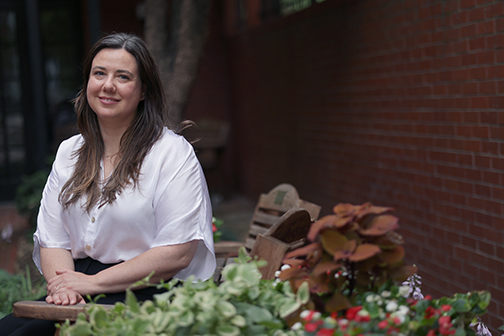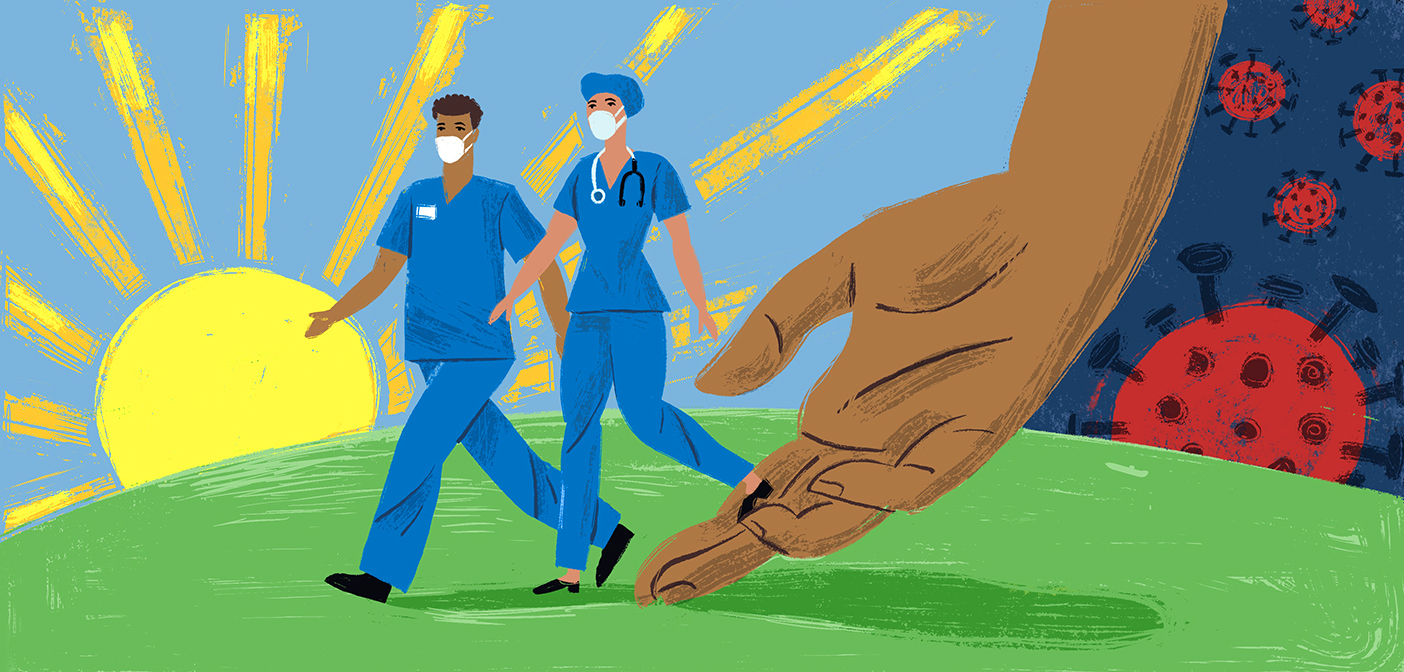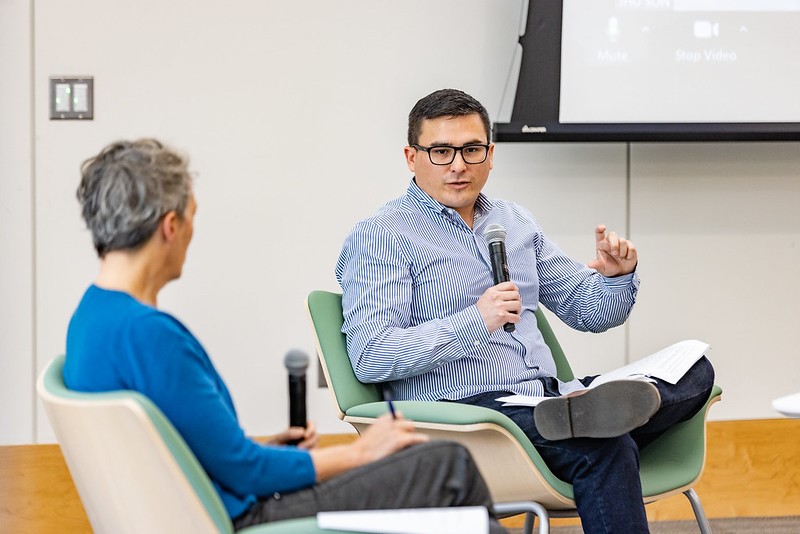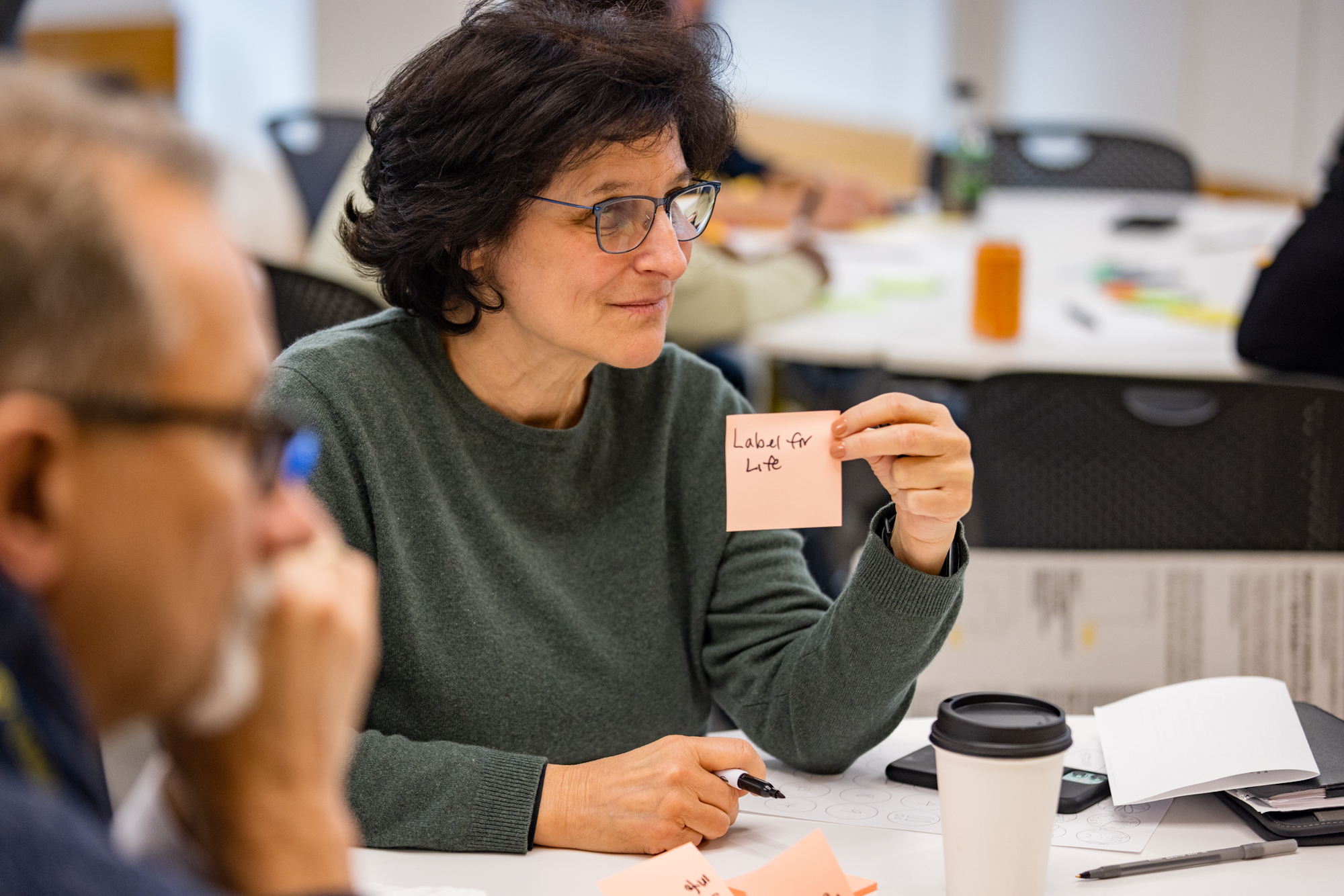The first morning that we filed into the cafeteria of Haven, our psychiatric-mental health nursing clinical rotation site, all eyes were on us six nursing students. The loud room went quiet, seventy-five expectant faces turned toward us, and a moment of uneasiness came over me. I imagine I’m not the only nursing student for whom self-doubt and the sense of being an impostor are familiar feelings at the beginning of a clinical rotation. I began to ask myself, “How will I know the most therapeutic thing to say? What can I possibly offer these people, in exchange for their welcoming me into their treatment for seven weeks?” But before I could dwell on these thoughts, a giant “WELCOME!” drowned them out, and we found ourselves walking around the room, shaking clients’ hands, learning their names, and answering a lot of questions about ourselves.

Haven is a psychiatric rehabilitation program that serves people with severe, chronic mental illnesses, whose primary diagnoses are mostly schizophrenia, bipolar disorder, and a few with major depression. Many are dually diagnosed with substance abuse disorders, and some have intellectual disabilities. Almost all the clients attend the program voluntarily, and even walk far distances or take the bus to get there. They join certain units, such as the maintenance unit or the clerical unit, that either contribute to the operations of the facility or focus on certain activities. In addition, they attend therapeutic groups and see their counselor, therapist and psychiatrist regularly. Moreover, Haven provides hope and support to some of the most underserved and misunderstood people in our community.
One reason why it was so rewarding to learn the basics of psychiatric nursing at Haven is that the nursing students have an honored role at the program. We were referred to as “the nurses” and our instructor as “Dr. Carl.” Our involvement was an integral part of the daily life of Haven, not auxiliary. It was a wonderful experience. I loved leading yoga classes each morning after breakfast, and watching as a client became the yoga teacher in the last week. I loved working with my brilliant classmates to lead therapeutic groups and see the results – often, shy or apathetic clients would come out of their shells to act in charades, answer a question, tell a story, sing a song, or dance. I also loved getting to know clients individually, and in turn getting to know myself as a nurse in their presence.

After our second-to-last day at Haven, we got together as a group to cook dinner together and bake cookies for the Haven staff. Our clinical instructor had told us that in nursing, you shouldn’t keep thinking about the patients once you get home, but the conversation at dinner kept coming back to our clients at Haven, something they had done that surprised us, or made us sad, or made us laugh. In fact, it will be hard not to think about and talk about Haven for a while to come.
 The Returned Peace Corps Volunteer to Nurse Pipeline
The Returned Peace Corps Volunteer to Nurse Pipeline Psych PhD Candidate Guides Families Full Circle
Psych PhD Candidate Guides Families Full Circle COVID and Nursing: Where to from Here?
COVID and Nursing: Where to from Here? Just Getting Started: Alum Fernando Mena-Carrasco Back for PhD
Just Getting Started: Alum Fernando Mena-Carrasco Back for PhD The Parent Rap
The Parent Rap







